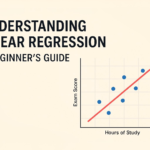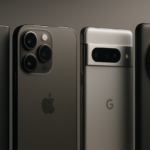Physical Address
304 North Cardinal St.
Dorchester Center, MA 02124

Explore how AI in quantum computing revolutionizes industries through faster algorithms, quantum neural networks, and hybrid systems for next-generation problem solving.
AI in Quantum Computing represents one of the most fascinating technological convergences of our time. This powerful combination is poised to reshape how we solve complex problems across industries, accelerating scientific discoveries and creating entirely new possibilities that were once considered science fiction. As we venture deeper into this technological frontier, understanding how these two transformative technologies interact becomes increasingly important for researchers, businesses, and technology enthusiasts alike.
Table of Contents
ToggleAI in Quantum Computing begins with understanding how these two revolutionary technologies complement each other. While artificial intelligence excels at finding patterns in vast amounts of data and making predictions based on those patterns, quantum computing provides an entirely new computational paradigm that can potentially solve problems beyond the reach of classical computers.
Traditional computers, including those powering today’s AI systems, use bits that exist in one of two states: 0 or 1. In contrast, quantum computers use quantum bits, or qubits, which can exist in multiple states simultaneously thanks to the quantum mechanical principles of superposition and entanglement. This fundamental difference gives quantum computers the theoretical ability to perform certain calculations exponentially faster than classical computers.
The intersection of AI in quantum computing creates a powerful synergy. Quantum computers can potentially accelerate AI algorithms that are computationally intensive, while AI can help optimize quantum algorithms and mitigate errors in quantum systems.
One of the most promising applications of AI in quantum computing is accelerating the training of complex machine learning models. Training sophisticated AI models like large language models requires enormous computational resources and time on classical computers.
Quantum computing offers several approaches to speed up this process:
I find it fascinating how AI in quantum computing is reshaping our approach to machine learning. The ability to process complex calculations exponentially faster could revolutionize everything from image recognition to natural language processing.
AI in quantum computing has led to the development of several quantum algorithms specifically designed to address optimization problems in artificial intelligence:
The QAOA represents one of the most promising approaches for solving combinatorial optimization problems like route optimization, scheduling, and resource allocation. These problems are ubiquitous in AI applications but often extremely difficult for classical computers to solve optimally.
For example, a logistics company using AI in quantum computing could potentially find more efficient delivery routes across hundreds of locations, saving substantial time and fuel costs compared to solutions from classical algorithms.
The VQE algorithm combines quantum and classical computing in a hybrid approach to find the lowest energy state of a system. This has direct applications in chemistry, materials science, and drug discovery – fields where AI is increasingly important.
A pharmaceutical company leveraging AI in quantum computing through VQE could model complex molecular interactions more accurately, potentially accelerating the discovery of new medications for challenging diseases.
Various quantum versions of machine learning algorithms have been developed, including:
These algorithms leverage the unique properties of quantum systems to potentially perform certain machine learning tasks more efficiently than their classical counterparts.
The integration of AI in quantum computing is beginning to transform numerous industries through its unique problem-solving capabilities:
Drug discovery typically requires simulating molecular interactions with extreme precision – a task that overwhelms classical computers for all but the simplest molecules. AI in quantum computing could revolutionize this process by:
The financial industry deals with optimization problems and risk assessments that are perfectly suited for AI in quantum computing:
Developing new materials with specific properties is computationally intensive. AI in quantum computing could accelerate this process by:
| Industry | Classical AI Challenges | Quantum AI Solutions |
|---|---|---|
| Pharmaceuticals | Limited molecular simulation capabilities | Accurate quantum-level simulations of complex molecules |
| Finance | Combinatorial explosion in portfolio optimization | Efficient optimization across thousands of variables |
| Materials Science | Approximations required for complex simulations | Precise quantum-mechanical modeling of material properties |
| Logistics | NP-hard routing problems | Faster approximations of optimal solutions |
| Energy | Grid optimization complexity | More efficient resource allocation and distribution |
Quantum Neural Networks (QNNs) represent one of the most exciting developments in AI in quantum computing. Unlike classical neural networks, which process information using mathematical operations on binary data, QNNs leverage quantum mechanical properties to process information in fundamentally different ways.
I believe the potential of QNNs in revolutionizing AI in quantum computing is enormous, though we’re still in the early stages of understanding how to fully harness these capabilities.
Despite the tremendous promise of AI in quantum computing, several hardware challenges must be overcome before we see widespread practical applications:
Quantum states are extremely fragile and can be disrupted by tiny environmental interactions like temperature fluctuations or electromagnetic radiation. This decoherence limits the time available for quantum computations before errors overwhelm the system.
Current quantum computers have relatively few qubits (typically under 1,000), and these qubits have high error rates. Many practical applications of AI in quantum computing will require thousands or even millions of high-quality qubits.
Quantum error correction techniques are essential for reliable quantum computing but require multiple physical qubits to encode a single logical qubit. This overhead significantly increases the hardware requirements for practical applications.
Many quantum computing technologies require extremely low temperatures close to absolute zero, necessitating complex and expensive cooling systems.
As I consider these challenges, it’s clear that AI in quantum computing faces significant hurdles. However, the rapid pace of technological advancement gives me confidence that these obstacles will gradually be overcome.
Entanglement is perhaps the most fascinating quantum mechanical phenomenon and plays a crucial role in AI in quantum computing. When qubits become entangled, the state of one qubit becomes correlated with another, regardless of the distance between them.
This property enables quantum machine learning algorithms to:
The research into harnessing entanglement for AI in quantum computing is still developing, but it represents one of the most promising avenues for achieving quantum advantage in practical applications.
While fully quantum AI systems remain largely theoretical, hybrid quantum-classical approaches offer a practical path forward for AI in quantum computing. These models leverage the strengths of both paradigms:
Popular hybrid quantum-classical algorithms include:
These algorithms use a quantum computer to prepare a quantum state and measure it, while a classical computer uses the measurement results to adjust parameters for the next quantum computation. This approach is used in the Variational Quantum Eigensolver (VQE) and Quantum Approximate Optimization Algorithm (QAOA).
These models use quantum circuits as components within larger classical neural networks, allowing for quantum-enhanced feature extraction or processing specific layers in a quantum manner.
Check out more about quantum algorithms and their applications in machine learning
The hybrid approach represents the most promising near-term strategy for practical AI in quantum computing applications.
Error correction is a critical challenge for AI in quantum computing. Quantum systems are inherently susceptible to noise and errors from various sources, including:
Several approaches are being developed to address these challenges:
These codes encode logical qubits using multiple physical qubits in a way that allows errors to be detected and corrected. Popular codes include:
For near-term quantum computers where full error correction isn’t feasible, error mitigation techniques can help improve results:
Interestingly, AI in quantum computing creates a feedback loop where AI can help improve quantum computing itself:
The development of effective error correction and mitigation techniques will be crucial for realizing the full potential of AI in quantum computing.
As we look ahead, the convergence of AI in quantum computing promises to drive transformative changes across science, technology, and society. Some key developments on the horizon include:
Major cloud providers are already offering access to quantum computing resources. As these systems mature, we can expect quantum machine learning services to become available to businesses without requiring in-house quantum expertise.
Future natural language processing models may leverage quantum computing to better understand the complex contextual relationships in human language, potentially leading to more sophisticated AI assistants and translation services.
The combination of AI in quantum computing could accelerate scientific discovery in fields ranging from materials science to drug discovery, potentially leading to breakthroughs in clean energy, medicine, and beyond.
The advent of powerful quantum AI systems will raise new ethical questions and security challenges, including:
The integration of AI in quantum computing represents one of the most promising technological frontiers of our time. While we are still in the early stages of this journey, the potential applications span virtually every industry and scientific discipline.
For businesses and organizations looking to prepare for this quantum future, consider these steps:
The convergence of AI in quantum computing will likely unfold gradually over the coming years and decades, but those who prepare early will be best positioned to leverage these powerful technologies as they mature.
Are you ready to explore how AI in quantum computing might transform your industry or research field? The quantum future awaits, and its potential is limited only by our imagination and ingenuity.

Subscribe to our weekly newsletter below and never miss the latest product or an exclusive offer.




